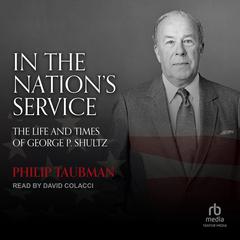 Play Audiobook Sample
Play Audiobook Sample
Secret Empire: Eisenhower, the CIA, and the Hidden Story of America's Space Espionage Audiobook
 Play Audiobook Sample
Play Audiobook Sample
Quick Stats About this Audiobook
Total Audiobook Chapters:
Longest Chapter Length:
Shortest Chapter Length:
Average Chapter Length:
Audiobooks by this Author:
Publisher Description
In a brief period of explosive, top-secret innovation during the 1950s, a small group of scientists, engineers, businessmen, and government officials rewrote the book on airplane design and led the nation into outer space. Led by President Dwight D. Eisenhower, they invented the U-2 and SR-71 spy planes and the first reconnaissance satellites that revolutionized spying, proved that the missile gap was a myth, and protected the United States from Soviet surprise nuclear attack. They also made possible the space-based mapping, communications, and targeting systems used in the Gulf War, Afghanistan, and Iraq.
Veteran New York Times reporter and editor Philip Taubman interviewed dozens of participants and mined thousands of previously classified documents to tell this hidden, far-reaching story. He reconstructs the crucial meetings, conversations, and decisions that inspired and guided the development of the spy plane and satellite projects during one of the most perilous periods in our history, a time when, as President Eisenhower said, the world seemed to be “racing toward catastrophe.”
This is the story of these secret heroes, told in full for the first time.
Download and start listening now!
“In this exciting, meticulously researched spy story, Taubman takes readers behind the closed doors of the Eisenhower administration to tell about the small group of Cold Warriors whose technological innovations—including the U2 spy plane and Corona, the country’s first spy satellite—revolutionized espionage and intelligence gathering.”
— Publishers Weekly
Quotes
-
“New York Times editor Taubman exudes admiration for the contrarian thinking and enterprise that brought into being the U-2, the SR-71, and the Corona series of surveillance satellites.”
— Booklist
Secret Empire Listener Reviews
-
" An interesting overview of the era and the players involved. "
— Tom, 4/17/2012 -
" Much more detailed about the U2 than Corona or the SR71 programs. Would have benifitted from that "
— Adam, 6/20/2011
About Philip Taubman
Philip Taubman, deputy editorial page editor of the New York Times, has written about national security and intelligence issues for more than twenty years. Earlier in his career, Taubman wrote about sports, education, and business for Time magazine and Esquire. He graduated from Stanford University in 1971, where he majored in modern European history and was editor of the campus newspaper, the Stanford Daily. Taubman is married to Felicity Barringer, who also works for the Times.
About Michael Prichard
Michael Prichard is a Los Angeles-based actor who has played several thousand characters during his career, over one hundred of them in theater and film. He is primarily heard as an audiobook narrator, having recorded well over five hundred full-length books. His numerous awards and accolades include an Audie Award for Tears in the Darkness by Michael Norman and Elizabeth M. Norman and six AudioFile Earphones Awards. He was named a Top Ten Golden Voice by SmartMoney magazine. He holds an MFA in theater from the University of Southern California.
























